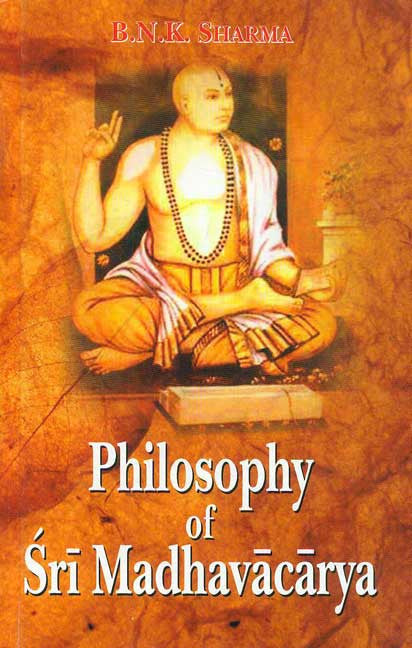Philosophy of Sri Madhavacarya
Philosophy of Sri Madhavacarya - Paperback is backordered and will ship as soon as it is back in stock.
Couldn't load pickup availability
Sri Madhavacarya (1238-1317) was the historical founder of the Dvaita system, which is one of
the three principal schools of Vedanta. He was a native of Tulunadu in Karnataka. Pajakaksetra,
eight miles south-east of the modern town of Udipi, on the West coast of S. India, was the village of his birth. He lived seventynine years.
He appeared on the Indian philosohical scene after the systems of Sankara and Ramanuja had been well established. The reasons which led him to propound a new system of Vedanta were his doctrinal differences and ideological dissatisfaction with contemporary trends and schools of thought within and without Hinduism and particularly with the system of Sankara which was the dominant philosophy of the time. In spite of the Theistic revolt against Sankara led by Ramanuja, Madhva could not agree with him on many points of Theistic doctrine. So he felt called
upon to give a new lead in thought to his countrymen.
MadhavaÃs writings are characterized by extreme brevity of expression and compression of thought. They need the help of a very good commentary to be understood in their fulness of thought and depth of meaning and intention. His commentator Jayatirtha has infused into them the necessary amplitude of utterance and expansiveness of thought and wealth of details.
This book is to give a complete, copious, critical and comparative exposition of Sri Madhavacarya's system of philosophy, bringing out its logical strength and metaphysical consistency and satisfyingness. It is intended to be an organic presentation of the system in all its essential aspects. It differs from all the other works in the field, including Dasgupta's, in showing how the concepts and categories of Madhava's philosophical thought have been conceived and formulated and have been put into a coherent system and in what relation they stand to those of other allied and rival systems. It brings out the special significance and interconnections of Madhava's doctrines and the architectonic unity of his system in relation to its parts. The reader is enabled to see for himself and appreciate the precise value and significance of some of Madhava's distinctive contributions to the perennial problems of religion and philosophy-particularly 'Indian Philosophy', for doctrine of Saksi, Svatantra, Visesa, Savisesabheda and Creation as Paradhinavisesapti.
Not only is such a systematic and critical exposition of MadhavaÃs philosophical system called for, but it has long been overdue. Metaphysically, it embodies the most powerful and sustained refutation of Vedantic monism. It has produced front-rank thinkers like Madhava, Jayatirtha and Vyasatirtha. It has an extensive philosophical literature of rare philosophical penetration, in Sanskrit. It has become the living faith of a large section of the people living in present-day India.
The volume is a good presentation of the philosophy of Sri Madhvacarya, complete in its architectonic unity. The author probes its ontological and epistemological foundations, and critcally examines the structure erected on them. The discussion focuses on crucial doctrines of theism, and brings to light for the first time the striking parallelisms of thought between Madhva and his Western contemporary St. Thomas Aquinas. Light is also thrown on how Madhva and his commentators anticipated the views of modern philosophers like Spencer, Russell and Hobhouse on the nature of time, space and memory. The latest researches on Madhvacarya's role in the Vedantic Bhakti movement and his attempt to harmonize the Upanisadic texts on monism and dualism are substantially drawn upon.
Â
-
Pages
-
Edition
-
Size
-
Condition
-
Language
-
Weight (kg)
-
Publication Year
-
Country of Origin
-
Territorial Rights
-
Reading Age
-
HSN Code
-
Publisher




